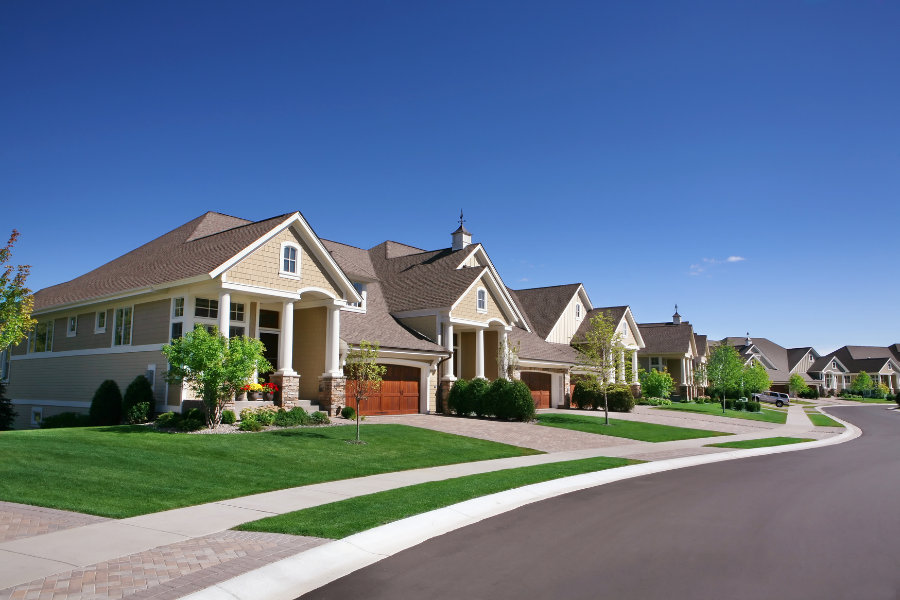The cookie-cutter style homes, complemented by meticulously-manicured lawns. The delightful sound of “howdy neighbor” here and there. More space to stretch out. Metropolis certainly has quite the appeal, doesn’t it?
If you answered “yes,” you’re not alone. With the COVID-19 pandemic making remote work a change that’s here to stay, more than ⅔ of urban counties in the US have reported record high population declines as droves of Americans migrate out of the city and into suburbia. Afterall, why be close to the office if you don’t have to be?
But are you really ready to leave the hustle and bustle of the city for the sleepier state that is suburbia? It’s a big decision, and the House Hacks Tips team is here to help. Keep reading to learn what to consider before you schedule the moving truck.
The Benefits of Life in the ‘Burbs
Lower Cost of Living
One of the forcing functions of leaving the city for the burbs is the frugality that comes along with it. By moving to the suburbs, homeowners can expect to get more for their money than living in a major city – about 50% per square foot more!
And space isn’t the only saver. From housing and utilities, to groceries and child care, nearly every expense is lower in the suburbs, significantly lowering nearly all monthly expenses.
And speaking of space…
More Space
Cities are home to a lot of people – and those people need somewhere to live. With high-demand and skyrocketing land costs, cities are forced to make the most of the space available to them, which means smaller spaces to accommodate more people.
The suburbs, on the other hand, can feel like a long-time city-dwellers oasis when it comes to space. Suburban homes are, on average, 300 square feet larger than the average city home. That means more space to stretch out for growing families, to host a home office, you name it. Not to mention the outdoor space that’s accustomed to suburban homes, including front and back yards, porches, and patios. That’s a lot of extra breathing room!
Suburban Setbacks
Lack of Exposure and Diversity
Cities bring together all walks of life, and one of the most exciting parts of living in a city is the amount of diversity in culture, food, and entertainment you’re exposed to.
According to a recent poll, 68% of suburban and small metro counties, and 79% of rural counties, are primarily white, compared to 44% of urban residents. So, if inclusion and diversity are important to you, keep in mind that you may need to put in a bit more effort to go out and find it in the suburbs.
Less Public Transportation
From subways and trains, to cabs and Ubers at the click of a button, cities offer ease of transportation for daily commuters. The suburbs, on the other hand, may be a tough adjustment for city dwellers who haven’t had to rely on a car since they can’t remember when (not to mention the time in traffic and cost of gas that comes with it!).
And on the topic of traffic…
A More Competitive Job Market
Fewer companies and fewer people mean any local job opening in the suburbs tends to be more competitive than those in the city. If you’re looking for a new role, be prepared to have to spend some time job searching and interviewing, and potentially commuting in and out of the city until you find a new position.
Whether you’re ready for life in the suburbs or would prefer to stay put in the city, both have their pros and cons. Regardless of where you end up, we’ll still be here to help you make it feel like home!

